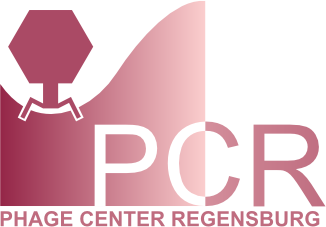
Recently, compassionate use of phages in cases, lacking therapeutic options (bacteria multiresistant against antibiotics) for serious or life-threatening infections has been used and occasionally published. Although there are currently few reference laboratories for the selection and testing of phages for clinical isolates, on-site testing is particularly advantageous in urgent cases. At the PCR new molecular tests to facilitate personalized phage therapy are developed.
Background Information
Phage Therapy for Multidrug-Resistant Infections: Medical Need and Regulatory Challenges
1. Prevalence of MDR Infections in Bavaria and Germany (2023)
Multidrug-resistant organisms (MDROs) cause tens of thousands of infections annually in Germany, especially in hospitals. An estimated 6% of all nosocomial infections are due to MDROs, equating to approximately 24,000–36,000 hospital-acquired infections per year. Including community-acquired cases, the total number of MDRO infections in Germany is estimated at around 54,500 annually. The following overview shows the main pathogens and their incidence:
|
Pathogen (MDRO) |
Nosocomial infections/year (Germany) |
Mortality rate (per 100,000 inhabitants) |
|
MRSA (Methicillin-resistant S. aureus) |
~11,000 |
~4.0 |
|
VRE (Vancomycin-resistant enterococci) |
~4,000 |
~3.4 |
|
Multidrug-resistant E. coli |
~8,000 |
~7.9 |
|
Multidrug-resistant K. pneumoniae |
~2,000 |
~2.2 |
|
Multidrug-resistant P. aeruginosa |
~4,000 |
~1.6 |
These five pathogens (the "ESKAPE group") account for the majority of severe MDRO infections. Bavaria, as the largest federal state, reflects national trends (e.g., a significant decline in MRSA rates but increasing problems with gram-negative pathogens). Each year, an estimated 9,700 deaths in Germany are directly attributed to MDRO infections. Including all cases where MDROs were at least involved, the number rises to up to 45,000 deaths annually.
2. Economic Impact: Additional Costs from MDRO Infections
MDRO infections impose substantial additional costs on the healthcare system. They often prolong hospital stays (by about five days on average), require more expensive treatments, and necessitate isolation measures. Studies estimate additional treatment costs of €5,000 to €20,000 per hospital-acquired MDRO infection. MRSA infections, for instance, incur costs nearly three times higher than comparable MSSA infections. An analysis by the Techniker Krankenkasse (TK) reported average excess costs of ~€17,500 per MDRO case. Recent calculations estimate even higher costs — up to €27,000 per patient — due to increasingly complex resistance patterns. This represents a 41% increase compared to 2018 and corresponds to an overall burden of ~€1.1 billion annually for German hospitals alone. Including all direct and indirect costs (rehabilitation, isolation, personnel, etc.), the total economic impact is estimated at €4 billion per year.
Main cost drivers of MDRO infections include:
These additional costs are often not reimbursed. Under Germany’s DRG system, MDRO-related expenses are only partially covered. Health economic analyses emphasize that investments in MDRO prevention (e.g., hygiene staff, screening programs) are cost-effective.
3. Regulatory Barriers to Phage Therapy in Germany
Despite promising results in individual cases, phage therapy remains outside standard care in Germany. Multiple bureaucratic and regulatory hurdles currently limit its broader application against MDROs:
These obstacles highlight that phages do not fit neatly into the existing pharmaceutical framework. Experts recommend a package of coordinated measures, including public funding programs, dynamic reimbursement models, add-on payments for hospital phage use, and international collaboration to establish phage banks and quality standards.
References
Federal Ministry of Justice. (2010). Ordinance on the compassionate use of medicinal products (Arzneimittel-Härtefall-Verordnung) of 14 July 2010, last amended by ordinance of 6 July 2022. Federal Law Gazette, I, 935.
Federal Ministry of Justice. (2006). Ordinance on the manufacture of medicinal products and active substances (Arzneimittel- und Wirkstoffherstellungsverordnung) of 3 November 2006, last amended by law of 23 October 2024. Federal Law Gazette, I, 2523.
German Bundestag. (2023). Bacteriophages in medicine, agriculture and food industry – Application prospects, innovation and regulatory issues (Report of the 18th Committee, BT-Drucksache 20/7600, 19 July 2023). Berlin: German Bundestag. Retrieved from https://dserver.bundestag.de/btd/20/076/2007600.pdf
Federal Joint Committee (G-BA). (2024). Off-label use – Prescribability of medicinal products in non-approved indications (Information page, as of December 2024). Retrieved from https://www.g-ba.de/themen/arzneimittel/arzneimittel-richtlinie-anlagen/off-label-use/
Kern, B.-R., & Rehborn, M. (2019). § 96 Medical standards. In B.-R. Kern & M. Rehborn (Eds.), Handbook of Medical Law (5th ed.). Munich: C.H. Beck.
Lipp, V. (2022). Compassionate use and medical research. In A. Laufs & C. Katzenmeier (Eds.), Medical Law (8th ed.). Munich: C.H. Beck.
Teklemariam, A. D., Al Hindi, R., Qadri, I., Alharbi, M. G., Hashem, A. M., Alrefaei, A. A., … Harakeh, S. (2024). Phage cocktails – an emerging approach for the control of bacterial infection with major emphasis on foodborne pathogens. Biotechnology and Genetic Engineering Reviews, 40(1), 36–64. https://doi.org/10.1080/02648725.2023.2178870
Willy, C., & Bröcker, F. (2023). Phage therapy in Germany – on the way to reintroduction into military medicine. Military Medical Monthly Journal, 67(6), 237–244. https://doi.org/10.48701/opus4-158
Scientific Services of the German Bundestag. (2023). Compassionate use – Current legal situation and practice (Status WD 9–3000–083/23, 19 December 2023). Berlin: German Bundestag. Retrieved from https://www.bundestag.de/resource/blob/986600/622476f3e4b0252f03ad816c34969c33/WD-9-083-23-pdf.pdf
World Medical Association. (2013). Declaration of Helsinki – Ethical principles for medical research involving human subjects (59th WMA General Assembly, Fortaleza 2013). Ferney-Voltaire: WMA. Retrieved from https://www.bundesaerztekammer.de/fileadmin/user_upload/_old-files/downloads/pdf-Ordner/International/Deklaration_von_Helsinki_2013_20190905.pdf
